The Consortium
Meet the Partners
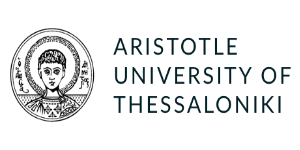
Aristotle University of Thessaloniki
Aristotle University of Thessaloniki, recognized as one of the premier Greek universities, distinguishes itself through outstanding education and research. As a multidisciplinary, globally-oriented institution, it spearheads an ambitious development initiative with its partners to elevate Thessaloniki as an eminent "Campus of Excellence.
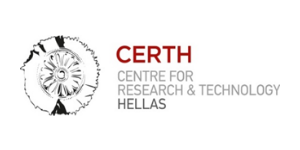
Centre for Research & Technology Hellas
The Centre for Research and Technology-Hellas (CERTH), founded in 2000 in Greece, is listed among the TOP-20 E.U. research institutions with the highest participation in competitive research grants. It is a legal entity governed by private law with non-profit status, supervised by the General Secretariat for Research and Technology (GSRT) of the Greek Ministry of Development and Investments. CERTH consists of five institutes in various research fields. The Information Technology Institute (ITI) is one of the leading Institutions in Greece in the fields of Informatics, Telematics, and Telecommunications. It is active in many research domains such as Security and Surveillance, Image and Signal Processing, Computer & Cognitive Vision, Virtual and Augmented Reality, Multimedia, Energy, Cloud Computing, IoT, and Big Data Analytics. CERTH/ITI has participated in more than 300 research projects funded by the European Commission (FP5-FP6-FP7 & H2020) and more than 200 research projects funded by Greek National Research Programmes. In SKILLAB, CERTH will serve the project from the role of an expert on AI and Machine Learning technologies, contributing to the development of frameworks, methodologies and analytical solutions for the identification, monitoring and prediction of the desired / uprising skills, as well as the recommendation of policies for upskilling / reskilling current competencies with respect to SSH principles.
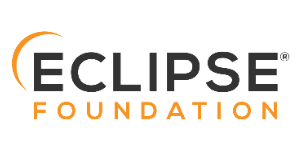
Eclipse Foundation
The Eclipse Foundation provides our global community of individuals and organizations with a mature, scalable, and business-friendly environment for open source software collaboration and innovation. The Foundation is home to the Eclipse IDE, Jakarta EE, and over 415 open source projects, including runtimes, tools, and frameworks for cloud and edge applications, IoT, AI, automotive, systems engineering, distributed ledger technologies, open processor designs, and many others. The Eclipse Foundation is an international non-profit association supported by over 350 members, including industry leaders who value open source as a key enabler for their business strategies. In the context of community building, sustainability and open source, the Eclipse Foundation has two decades of experience managing the governance of complex technology initiatives and multi-vendor organizations, making it the ideal organization to help manage projects where academia and the private sector converge. Its commitment to transparency, vendor-neutrality, and industrial-friendly ecosystem makes the foundation an ideal starting point for an open source project. The Eclipse Foundation has 10 years of involvement in EU research programs. We help organizations to successfully create, publish, and sustain their open source software platform, making the results of the research projects available for commercial or public exploitation. In SKILLAB, Eclipse leads the “Pilot Cases, Dissemination, Exploitation & Impact” in particular, the leadership of the following activities: Create a sustainable framework for the project’s Dissemination, Training & Communication Activities; Prepare the ground for SKILLAB Exploitation & Business Plan. Moreover, due to its portfolio of Open Source projects, Eclipse is participating as a Pilot Case offering to SKILLAB a wide collection of Open-Source Code, Interview with Open-Source community members, and Global Open-Source Community with 415 open-source projects and over 2000 committers.
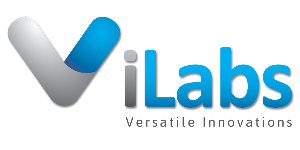
ViLabs Versatile Innovations
ViLabs is an SME created in 2011, that acts both as a private research and innovation laboratory and as an innovation Hub for startups. VILABS provides a wide range of research, development and consulting services to national as well as international enterprises and organisations, utilising a unique set of tangible and intangible resources, including knowledge, facilities, human and financial resources, supporting researchers and entrepreneurs to innovate. ViLabs is active in the sectors of ICT, cybersecurity, energy, health, gender and entrepreneurship through all stages of Research, Technological Development and Innovation. VILABS has become a leading promoter of linkages between research and/or educational centers, organisations, public and private sector and the industrial world. It has coordinated and provided expert support on EU projects providing high impact and good practices into various concepts and domains. The extended network of partners, including higher education institutions, business clusters and policy making stakeholders is a valuable asset the VIL brings to the project, both in terms of stakeholders’ engagement to the assessment of labour market’s gaps and opportunities, and in terms of overall project dissemination.
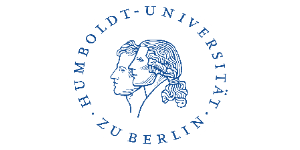
Humboldt-Universitaet zu Berlin
Humboldt-Universität zu Berlin is the oldest university in Berlin and one of the most renowned universities in the world. The Humboldtian ideal of education includes: (i) independence of research, and (ii) unity of research and teaching. In our Language Technology Group at the English Department of the university, our research focuses on Language Data Science and Artificial Intelligence (AI), including multilingual Robust Natural Language Analytics, Large Language Models (LLM)-driven Semantics, Discourse and Human Cognition Modeling, as well as Machine Learning for multiword units and figurative language and their impact in Natural Language Processing, spoken and written, for Social Sciences and Humanities and Ethics of Research in AI. In the aforementioned research areas, we have coordinated and contributed to many projects funded by the EU (e.g., “TraMOOC: Translation for Massive Open Online Courses” in Horizon 2020), the DFG (Germany), the BMBF (Germany), the DAAD (Germany), as well as the NSF (USA). In line with the excellence in our group’s research, Valia Kordoni has been the president of the ACL (Association for Computational Linguistics) SIGLEX’s (Special Interest Group on Lexicon) MWE (Multiword Expressions) Group, as well as the Local Chair of ACL 2016 – The 54th Annual Meeting of the Association for Computational Linguistics. UBER’s expertise in Machine Learning for Natural Language Processing, Large Language Models (LLMs) and Data Analytics contributes to SKILLAB’s approaches for the Labor Market Data Miner, by analysing through parsing and digesting skill-related information found mainly in reports. UBER’s aforementioned research expertise and know-how smoothly align with the other SKILLAB’s academic partners’ (AUTH, UOM, IHU, CERTH, UBER) overall aim towards the development of frameworks, methodologies and analytical solutions for the identification, monitoring and prediction of the desired / uprising skills, as well as the recommendation of policies for upskilling / reskilling current competencies with respect to SSH principles.

Telefonica
Telefónica Innovación Digital (TID) is a wholly-owned subsidiary company of Telefónica, S.A. (parent company of the Telefónica group), one of the largest multinational telecommunica-tions companies that operates in 12 countries, has presence in 38 countries, with +383M total accesses and +292M mobile accesses. TID is committed to carrying out the Research, Devel-opment, and Innovation (R&D+I) activities in the field of telecommunications, telematics and information systems, as well as to nurturing the Telefónica group with the necessary support elements for its development. These activities are primarily directed, though not exclusively, towards the study and preparation of documentation for Product Development, Exploratory Development, Applied Research, Technological Reports, Situational Studies on techniques and technologies, Testing Services, Quality Control, and Audits. The Scientific Research group of TID follows an open research model in collaboration with universities and other research insti-tutions, promoting the dissemination of their work both through publications and technology transfer. The board is constituted of a multi-disciplinary team with a variety of skills focusing on Fixed and Wireless Networking, User Modelling, Machine and Deep Learning, Distributed Sys-tems, Multimedia Analysis, HCI and Mobile Computing, Network Economics, Security and Pri-vacy.
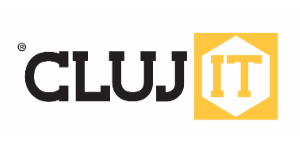
Cluj IT
Cluj IT is a cluster organization, based in Cluj-Napoca, a city located in the historical region of Transylvania and acknowledged as a significant IT center from Romania. The cluster is formed of active organizations in the information technology field: providers of software services and solutions, universities and research institutes, public bodies and other catalyst organizations. Founded in October 2012, Cluj IT is an innovation based value chain network of Romanian IT companies and related organizations with the purpose of increasing the competitiveness and growth of IT services and products on international markets and of creating a strong sustainable public – private partnership in order to improve the life quality of the community we are part of. For this, we created an ecosystem suitable for the development and manufacture of innovative software services and products, with high value added, through: close collaboration between the cluster’s members, exchange of knowledge and ideas, public-private partnership and support of research – for the benefit of member organizations and with impact upon the society overall. Cluj IT initiative was born as a catalyst to increase competitiveness of the IT sector in Romania and to respond to the challenges which the organizations in this sector face, therefore all the projects run in the organisation serve this purpose. Here are some project examples: European eDIH – Digital Innovation Hub for Society, Entreprise Europe Network - BisNet, Eurocluters - DREAM, DESIRE, RE-CENTER, learning and development projects for digital skills and SME digitalisation - Competactiv, Accelerator Digital, Informat. Main focus areas: Learning and development, SME digitalisation, Cybersecurity, eHealth, IT sector Sustainability, Green digital transformation
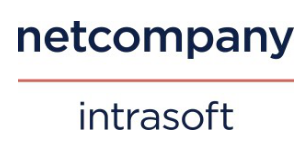
Intrasoft International
Netcompany-Intrasoft is a leading European IT Solutions and Services Group with strong international presence and expertise, offering innovative and added-value solutions of the highest quality to a wide range of international and national public and private organizations. As of November 2021, Netcompany-Intrasoft became a member of the Netcompany Group, a Denmark located IT company founded in 2000. Netcompany is the fastest growing and most successful IT services company in the Nordics, owning vast technology experience and deep industry-specific knowledge, creating innovative solutions tailored to meet business goals.
Netcompany-Intrasoft employs more than 2,800 highly skilled professionals, representing over 50 different nationalities and mastering more than 30 languages. With headquarters in Luxembourg, Netcompany-Intrasoft operates through its operational branches, subsidiaries and offices in 13 countries: Belgium, Bulgaria, Cyprus, Denmark, Greece, Jordan, Kenya, Luxembourg, Romania, RSA, UK, UAE and USA.
More than 500 organizations in over 70 countries worldwide (Institutions and Agencies of the European Union, National Government Organizations, Public Agencies, Financial Institutions, Telecommunication Organizations, and Private Enterprises) have chosen the company's services and solutions to fulfill their business needs.
Netcompany-Intrasoft's expertise and strength lies in its proven capacity and successful track record in undertaking and delivering, complex, mission - critical projects. Netcompany-Intrasoft's professionals have developed the ability to combine their technical expertise with thorough understanding of each customer’s individual business needs.

Democritus University of Thrace
The Democritus University of Thrace was, from its foundation, the first Greek regional polyhe-dral university, the necessity of which was not exclusively related to educational objectives. Its operation, through its polyhedrality, initially in the cities of Xanthi and Komotini, Alexan-droupolis and Orestiada and then in Kavala and Drama, in addition to its educational and re-search activity, was an essential intervention in the economic development of the Region of Thrace. At the same time, it contributed significantly to the strengthening of the national and cultural character of the wider region of Thrace and to the upgrading of the living and social standards through direct and indirect actions of offer. The Democritus University of Thrace is among the largest universities in the country in terms of active student population. The Uni-versity is geographically developed throughout the Region of Eastern Macedonia and Thrace, with 10 Faculties, 28 Departments, and a variety of Postgraduate Programmes, with a student population of approximately 42,000 (undergraduate students, postgraduate students and doc-toral candidates) and with a research and teaching staff of over 700 people, it continues to be the only university institution in the Region of Eastern Macedonia and Thrace.
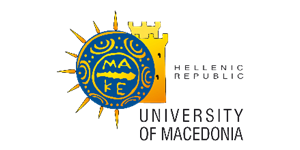
University of Macedonia
The University of Macedonia is the second and “youngest” University of the city of Thessaloniki and it specializes in economic and social sciences. In the academic year 2016-2017 the University of Macedonia completed 60 years of operation as an Institution of Higher Education in Greece. Today, more than 12,000 students study at the University of Macedonia in economic, administration, computer science, social and political related fields. The high level of graduates and professors and their participation in the shaping of new knowledge with publications of international standing, the innovative teaching methods, the modern equipment and the qualified administrative staff constitute the factors which define the university’s quality. The University aims at responding to the needs of society, working together with public organizations and private businesses, shaping partnerships with other Universities and Research Centers in ways that complement and enhance its activities. Through its diverse initiatives and events, the University also contributes to the cultural affairs of Thessaloniki and Macedonia by maintaining a continuous interaction with citizens. The Software Engineering Group of the Applied Informatics Department of the University of Macedonia is active in education and research in the areas of Software Technology, Software Quality and Maintenance, Programming Environments, and Internet Applications. The group consists of 2 staff members, 2 post-doc researchers, and more than 15 PhD, MSc, and BSc students. The group's research activity focuses on Smell Identification & Refactoring, Technical Debt, Empirical Studies on Software Evolution, Machine Learning for Technical Debt Identification, and Explainable AI for Technical Debt Management. The group has participated in more than 15 European and National research projects in the last 10 years, including 5 HORIZON 2020 / EUROPE projects. The group is internationally well-recognized as a top research institute in the field of Technical Debt Management, but also Software Engineering.
